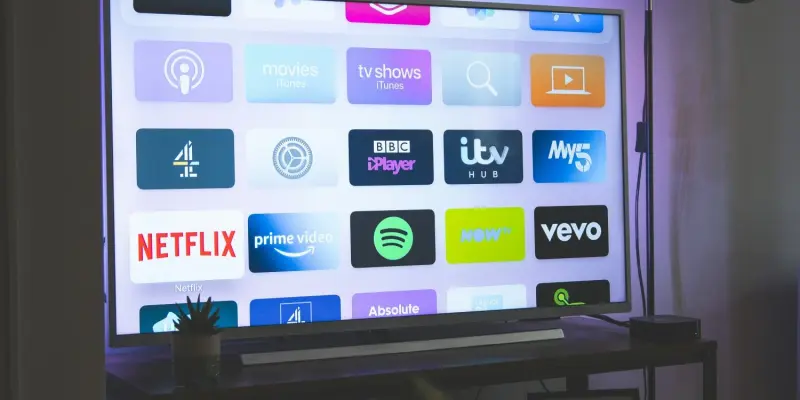Comcast’s introduction of Universal Ads signifies a pivotal moment in the world of TV advertising, specifically targeting small- to medium-sized enterprises (SMEs). By emulating the straightforward nature of digital platforms such as YouTube, Universal Ads aims to dismantle barriers that have traditionally kept SMEs from accessing premium television advertising. The platform acknowledges the growing affinity of advertisers for more accessible social video platforms due to the sophistication and cost associated with TV ads. Universal Ads seeks to convert this inclination by providing an avenue as user-friendly as digital platforms, thereby inviting SMEs into the premium television advertising fold. This initiative is more than a simple enhancement; it’s an ambitious move to redefine television advertising’s accessibility, engaging businesses previously hesitant about TV’s complexity and expenses.
Universal Ads Opens New Doors for TV Advertisers
Universal Ads enters the advertising arena at a time when digital platforms have captured much of the ad spend that once was the domain of traditional television. By strategically aligning itself with digital advertising processes, Universal Ads aims to recapture and engage advertisers who have been swayed by the streamlined, cost-effective, and targeted nature of online advertising. This move coincides with a broader industry shift as businesses recognize the necessity of integrating television advertising into their holistic marketing strategies. By presenting a digital-like buying experience, Universal Ads effectively lowers the barriers to entry, enabling SMEs to leverage TV ads similarly to social media ads, relying on precise audience targeting. This reimagining of TV ad purchases is critical, especially for emerging businesses that often prioritize reach and measurability in their advertising choices. By providing a platform that mirrors the accessibility of digital advertising, Universal Ads offers compelling reasons for businesses to reconsider television’s potential without repeating the complexities of traditional ad purchases. With this approach, Universal Ads seeks to cultivate a new cohort of advertisers who might have previously dismissed TV advertising due to perceived barriers.
Building Partnerships and Enhancing Accessibility
To fortify its standing, Universal Ads has engaged in significant partnerships with major networks such as A+E, AMC Networks, and NBCUniversal. The addition of newer collaborations, like those with Estrella MediaCo and LG Ad Solutions, further extends its reach, reflecting an evolving industry trend towards cooperative access to diverse audience segments. These partnerships represent a collaborative effort to counter the challenge posed by digital platforms, which often fragment advertising reach by focusing on niche audiences. For advertisers, this network provides access to a vast array of viewer demographics, aligning TV advertising more closely with the multifaceted audience bases typically seen in digital domains.
The cooperative approach also signifies a shift towards consolidated access, enabling advertisers to engage with a spectrum of viewers effectively. This network-wide approach streamlines the advertising process, vital for SMEs that may lack resources to conduct fragmented, publisher-specific buys. By offering a more integrated approach, Universal Ads reduces the cognitive load and administrative complexity often associated with buying TV ad space, enabling advertisers to harness extensive television networks with as much precision and ease as digital platforms allow.
Outcome-Oriented Advertising Strategies
A cardinal element of Universal Ads is its commitment to outcome-oriented advertising principles, which aligns seamlessly with the needs of e-commerce-focused advertisers. By collaborating with Measured, a firm expert in incrementality-based media measurement, Universal Ads enables advertisers to link ad expenditures directly to tangible sales outcomes rather than relying solely on traditional reach and frequency metrics. This represents a pivotal evolution in television advertising, addressing growing demands for transparent and data-driven return on investment (ROI) insights. For advertisers transitioning from digital to TV or incorporating TV into an existing digital strategy, the ability to attribute advertising spend directly to sales can drive more informed decisions. In emphasizing outcomes over broad-reaching metrics, Universal Ads provides an ad platform that not only meets but anticipates the complex demands of the modern advertising landscape. This approach resonates with advertisers aiming to meticulously measure their advertising impact, signifying a move towards more accountable and responsive TV advertising strategies. Equipped with data insights, advertisers are better positioned to harness TV advertising’s traditionally broad reach while still securing measurable outcomes.
Leveraging AI and Comcast’s Expertise
Universal Ads steps into the advertising world as digital platforms dominate ad spending, which once belonged mainly to traditional television. By aligning with digital processes, Universal Ads aims to win back advertisers attracted by the efficiency and precision of online ads. Their approach aligns with industry trends, where integrating TV ads into comprehensive marketing plans is now essential. Universal Ads simplifies this by offering a buying experience akin to digital ads, thus reducing entry barriers for small and medium enterprises. This allows them to utilize TV ads with targeted precision similar to social platforms.
This modern approach to TV advertising is vital for growing businesses prioritizing reach and measurable outcomes in their ad strategies. Universal Ads creates a user-friendly platform that echoes the ease of digital ad buying, encouraging businesses to reevaluate TV advertising without facing traditional complexities. The goal is to engage a new wave of advertisers who previously saw television as out of reach due to perceived hurdles, showcasing TV’s potential in contemporary marketing dynamics.

